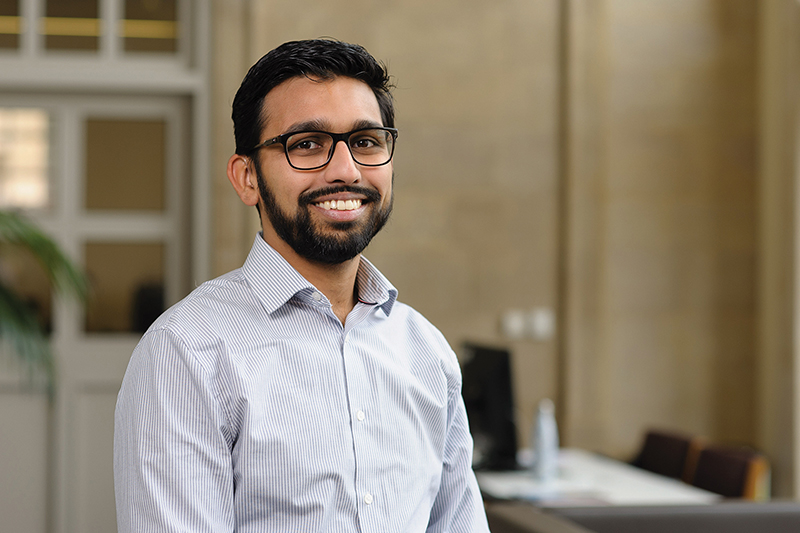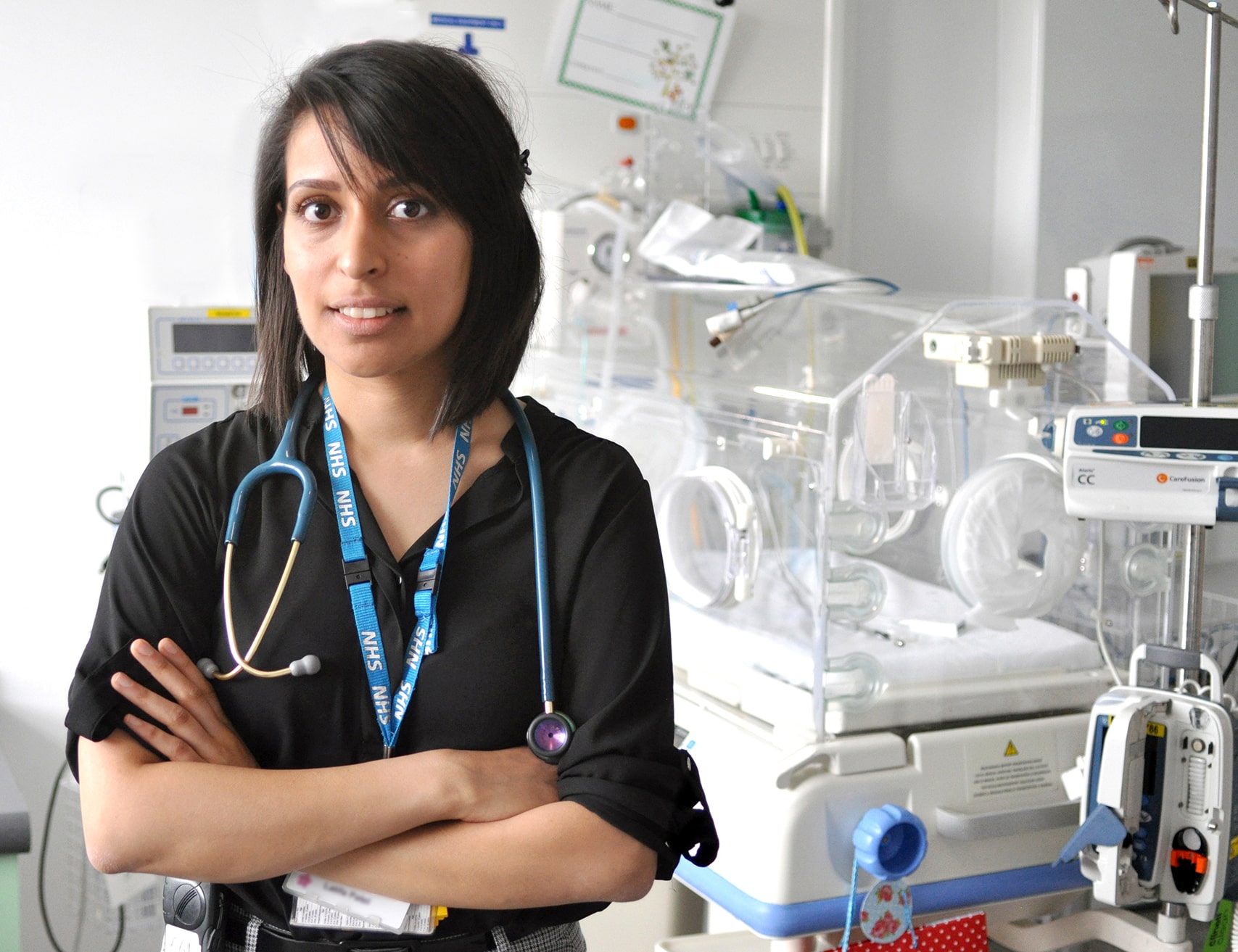Khadija Meghrawi is proud of being a medical student and Muslim – it should not be a choice but sometimes she feels as though she is being forced to pick between the two. ‘A doctor once asked me, “How can you be an intelligent woman and wear that on your head?”,’ she says, referring to the hijab.
‘And my case isn’t even the worst I’ve heard. You feel the constant question in the eyes of those around you. Both a medic and a Muslim? Our pride in following Islam is continuously pitted against our pride in our medical careers.’
Islamophobia is defined as a dislike of or prejudice against Islam or Muslims. Research from Birmingham University published in January this year shows more than a quarter of the British public feel negatively towards Muslims, with almost one in 10 feeling ‘very negative’.
There is little doubt it exists in medicine, too, according to a survey of healthcare workers, including doctors, published in The Huffington Post two years ago, in association with the BIMA (British Islamic Medical Association).
It found 81 per cent had experienced Islamophobia or racism, while 57 per cent felt it had held them back in their NHS career progression. The BMA report Racism in Medicine, published this year, found 30 per cent of respondents thought the racism they experienced was linked to religion and belief, with many citing experience of Islamophobia.
Difficult conversations
Salman Waqar, the vice president of the BIMA, wants to see greater awareness of Islamophobia as well as steps to stop it happening.
‘Religion is one of the nine protected characteristics in [equalities] legislation and it always feels like it is an unprotected protected characteristic,’ he says.
‘You can go into a meeting and talk about gender inequality, about LGBTQI inequalities, about racial inequalities, and people kind of get it. But faith inequality is different – people aren’t too comfortable hearing or talking about that.’
A doctor once asked me, 'How can you be an intelligent woman and wear that [hijab] on your head?'Ms Meghrawi
BIMA worked with The Huffington Post to ‘shift the conversation’, says Dr Waqar. ‘You can have all the reports in the world, but the needle is really sluggish to shift,’ he says.
‘I think collaborating with the media was quite helpful because it did unlock conversations outside the four walls of the [NHS] system, which is as important as engaging with and working within the system. Change has to come from within, but it is also responsive to trends and influences that happen outside.’
 WAQAR: ‘Faith inequality is different – people aren’t too comfortable hearing or talking about that’
WAQAR: ‘Faith inequality is different – people aren’t too comfortable hearing or talking about that’
The in-depth survey of 133 health workers (including hospital doctors, GPs, pharmacists and medical students) shows that being ‘visibly Muslim’ – for example wearing a hijab or a beard – increases the risk of experiencing Islamophobia.
Respondents say they are fearful of reporting it for fear of repercussions – with one woman doctor saying you ‘may as well flush your medical degree down the toilet’ if you do. A lot of Muslims felt the articles were a ‘Me Too’ moment for them, he adds.
‘Having their experiences written in raw and unadulterated detail validated them and made them realise that what they were going through was similar and was not acceptable.’
Religion feels like it is an unprotected protected characteristicDr Waqar
This included Muslim healthcare workers reporting that they were taunted about whether they were applying to join ISIS, being told if they wore hijabs, they wouldn’t get NHS jobs and being urged to eat bacon. One doctor carrying a lot of bleeps was told he looked ‘like a suicide bomber’.
Two years on, doctors are still experiencing Islamophobia, says Dr Waqar, who is a GP in Berkshire, and very few are prepared to talk about it because of fear of reprisals. There is also the question of intersectionality – where someone has more than one protected characteristic and faces compounded discrimination.
‘We know that women are less likely to get into management posts, that non-white people are less likely to get senior posts, and the same is true of people who work part time. So, if you look at our community, if you’re a Black, immigrant, Muslim woman who is a mother and works part-time, then you’re facing a lot of challenges,’ he says.
Report a problem
Initiatives such as unconscious bias training will not, in themselves, be a solution, he adds. ‘That’s not how we’re going to fix this – it is as if making people aware of their biases is going to be enough. That is where it breaks down.’
Doctors should be able to bring their ‘whole selves’ into work, says Dr Waqar, and they shouldn’t have to hide who they are. Employers should take steps to ensure that workplaces truly are inclusive, giving staff the confidence, for example, to use exception reporting where there are issues.
‘There is no way to sugar coat it – there are bad employers and some bad individuals out there. But I do think most people just aren’t aware of these issues, and don’t realise they are perpetuating stereotypes or being discriminatory to their colleagues or patients.’
Apparently small things can make a real difference, he says, such as making prayer rooms available, accessible and suitable, with proper washing facilities, and ensuring there is halal food on hospital menus.
‘If you’ve got a new build happening, is it really too difficult to put that in place? Is it too difficult to ask for things like a chaplain to be available for patients and for staff?’
Career events, academic conferences, networking dinners, social activities for doctors – so much of them involve alcohol as a large componentMs Meghrawi
According to the NHS England chaplaincy guidelines, chaplaincy is ‘not affiliated to any one religion or belief system’. Dr Waqar is hopeful that positive change is possible.
‘It’s unfortunate that we do have to keep banging the drum until the music changes. But I do think that with each movement the tempo does change – but equally, we are a dynamic society, so we can go back as well as forwards. It’s a constant struggle.’
Social deficit
As a fourth-year medical student in Bristol, Ms Meghrawi is part of the future NHS workforce – but already has fears about how welcoming it will be. Countless students have faced discrimination and marginalisation, she says.
For example, Muslim students often feel implicitly or explicitly excluded from the drinking culture that is part of medical school in the UK. This means they lose out on social and professional opportunities.
 MEGHRAWI: Countless students have faced marginalisation
MEGHRAWI: Countless students have faced marginalisation
‘Career events, academic conferences, networking dinners, social activities for doctors – so much of them involve alcohol as a large component. As a student you’re learning what becomes clear as a professional – avoiding environments with alcohol means missing out on opportunities and connections. We would rather stay true to ourselves, but again, why is it a choice? Why should that mean missing out?’
Not allowing people to express their faith is not allowing them to express their whole selfDr Patel
The nature of medical education, where you don’t get to choose where you go on placement, or even who you live with, can also be problematic, she says. She cites one instance where a drunk male medical student barged into the bedroom of a female Muslim student when she wasn’t wearing a headscarf.
‘He apologised and she felt she had no choice but to excuse it, laugh it off,’ says Ms Meghrawi. ‘She also felt no choice but to triple check that she had locked herself in every night afterwards. Such experiences would be far easier to handle back at city campus, among a more diverse student body, in the communities of support that you had found for yourself. In the isolation of placement in a hospital far away, we are all left with little choice but to cope.’
Accept the person
Latifa Patel, chair of the BMA representative body, says BMA surveys and webinars have confirmed doctors can be reluctant to share their faith at work.
‘There’s a fear among NHS workers – and doctors in particular – that declaring their faith and talking about it at work might alter people’s perceptions and behaviour towards them. I think this is a great shame.
'People bring their full selves to the NHS when they come to work, not just the clinical aspects. They bring their personalities, their background, their heritage – their religion included. So not allowing people to express their faith is not allowing them to express their whole self,’ she says.
 PATEL: Witnesses to discrimination must act too
PATEL: Witnesses to discrimination must act too
The NHS workforce ought to reflect the population it serves, she adds, and it can be helpful to people of faith backgrounds to feel a commonality with their doctors, particularly if they are frightened or unwell. BMA surveys, including on race, have shown the problem isn’t only those who are actively hostile.
‘It is not just the person who is doing the discriminating, it is those who are listening to it and not being active allies. There is a call to action here – if you hear anyone making Islamophobic comments, or comments against any religion, I urge you to call it out, because it’s not acceptable. We wouldn’t accept it for our patients and we shouldn’t accept it for our colleagues.’
Being an active ally means not putting the onus on the marginalised or discriminated person to correct stigma and ignorance, she adds. ‘It should be all of our responsibility.’

